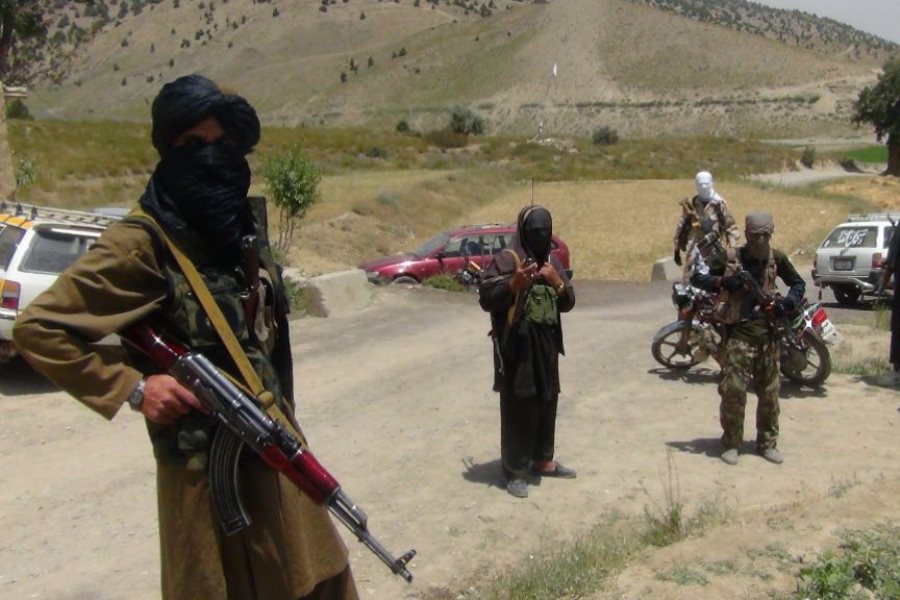The characteristic of terrorist groups is that, first, they have a dune nature; that is to say, they quickly organize their core elements to carry out terrorist operations, and second, they have a McDonald style; that is to say, according to the conditions that have been created, they quickly grow and establish military bases in different places.
These two features are quite evident in Afghanistan and the ISIS has made maximum use of this situation and based its actions on the current issues and problems of that country. Considering the terrorist actions of the ISIS and their recent action in Herat region, it is necessary to pay attention to the following points:
• The ISIS had at some point focused its operations on the Shiites and justified its actions with false claims such as enemies near and far; however, in recent times, some terrorist acts of the ISIS have been carried out against other religious minorities in Afghanistan, and this shows that the slogans of the group based on the war with Shiite are completely false, and from the point of view of this group, anyone outside the circle of the ISIS will be attacked.
• The ISIS plays its role as a playing card in the hands of the United States in Afghanistan, and this can be defined in the general strategy of the US to destabilize the region. On the one hand, the ISIS plays a role as a threat to the Taliban, and on the other hand, it is considered a threat to Iran, Russia, and even China. In addition to those two propositions, the ISIS is a tool for more interventions of the United States in Afghanistan under the pretext of fighting terrorism.
• Most of the ISIS power in Afghanistan is focused on creating a security challenge for the Taliban, because this group believes that by putting pressure on the Taliban in this field, it will achieve two results: a) It will involve the Taliban in security issues in different geographical areas and breaks down its focus in different areas; b) The multiplicity of geographical activities reduces the conditions for the Taliban in not confronting them. As a result of these two cases, internal and external pressures on the Taliban to establish security are intensified and this becomes a factor in dealing blows on the Taliban.
• The Taliban has had the most conflicts with the ISIS in the current one-year period and does not consider the presence and influence of that group in Afghanistan to be beneficial for itself. It is according to these conditions that the ISIS has focused all its attention on security and destructive measures in Afghanistan.
• In its operations in Afghanistan, the ISIS uses the tactics of small-scale operations, that is to say, it seeks to deal blows and carry out actions that result in the greatest amount of destruction and human casualties. For this purpose, the ISIS activity is focused on places such as mosques, which are the places where the maximum number of people gather and are present.
• The risk of the ISIS security measures is currently limited to Afghanistan, and there is a possibility that this type of operation will be extended to other regions such as Central Asia and the subcontinent. In this regard, the ISIS seeks to expand its geographical and intellectual sphere to areas outside of Afghanistan, which can strengthen its security influence and destructive proposition through this proposition.
• With such actions, the ISIS seeks to convey this message to public opinion that although its governmental sphere has been destroyed, its operational and mission sphere is still standing. That is to say, the same suicide operation with the aim of destroying communities regardless of the place of operation. In fact, the ISIS instills the proposition that its operational capability is not limited to a few areas and it can operate in different areas. Of course, it should be noted that the current conditions in Afghanistan have provided the ground for the ISIS, otherwise this group would not have such an operational capability.
Final assessment
The ISIS is seeking to expand its mission and operational areas in different parts of the region and even beyond the region, and it is trying to provide this possibility by carrying out the current suicide operations in Afghanistan. All such cases show that agents behind the scenes and in an organized manner provide various support to this group to prepair the conditions for the revival of the ISIS activities. The support that the United States renders to the ISIS in this regard is to achieve several objectives, the most important of which is to create instability in Afghanistan and then extend it to the surrounding countries.
The Complexities and the Necessity of Confronting ISIS-Khorasan
Strategic Council Online – Note: With the rise of the Taliban in Afghanistan, the issue of ISIS-Khorasan, the conflict between these two groups, and the expansion of the scope of their security threats in the region have become more critical than ever before, as the terrorist activities of this terrorist group disrupt regional security. In addition to this, support for suicide activities and armed individuals in the region has also put the security of Iran at risk. Therefore, ISIS-Khorasan is recognized as a significant threat to the eastern security of our country.
Dr. Hossein Ebrahimnia – Regional Issues Expert










0 Comments